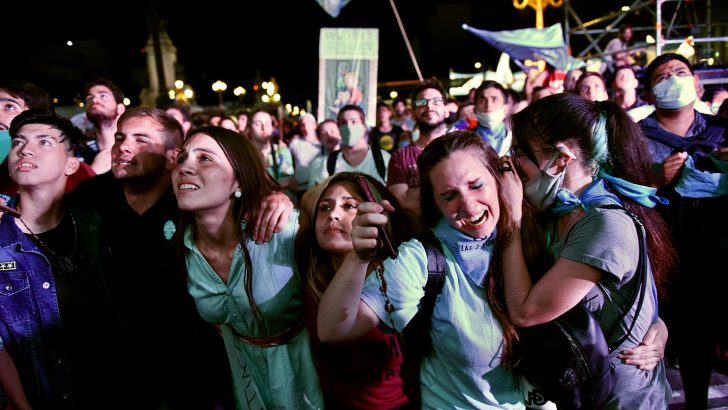Argentina has legalised abortion during the first 14 weeks of pregnancy, despite strong Catholic opposition and polls showing deep divisions on the issue.
Decision
The Senate approved the bill 38-29 December 30 after a 12-hour debate as supporters with green handkerchiefs and opponents with blue handkerchiefs awaited the decision in the streets during the small hours of the morning. President Alberto Fernández presented legislation in November – it was quickly approved in the lower house – and has promised to sign it into law.
The bishops’ conference expressed disappointment with the legislation’s approval but said in a December 30 statement it “will continue working with firmness and passion in the care and service of life”.
“This law which has been passed will further deepen divisions in our country,” the bishops said. “We deeply regret the remoteness of our leaders from the feelings of the people, which have been expressed in various ways, in favour of life, throughout our country.”
The bishops also pledged to “continue working on the authentic priorities requiring urgent attention in our country: children living in poverty in increasingly alarming numbers, a number of (those children) dropping out of school (and) the urgent pandemic of hunger and unemployment, which affects many families.”
Abortion legal
The legislation, which makes abortion legal during the first 14 weeks of pregnancy and provides access free of charge through the public health system, was modified slightly to allow for conscientious objection and requiring patients under the age of 16 to have the permission of at least one parent or guardian.
Argentina, home country of Pope Francis and still heavily Catholic, becomes the fourth country in Latin America to legalise abortion, following Uruguay, Cuba and Guyana.
A November poll by the firm Giacobbe and Associates showed 60% of respondents opposed legalising abortion, with 27% in favour. Polls published in 2018, when the Senate narrowly voted against abortion legalisation, showed a closer division.
The bishops lobbied hard against the bill and demonstrated displeasure with Mr Fernández by forgoing a traditional pre-Christmas meeting with the president and publishing an unflattering assessment of Argentina’s deteriorating social situation.


 Pro-life demonstrators react after the Senate passed an abortion bill in Buenos Aires, Argentina. Photo CNS.
Pro-life demonstrators react after the Senate passed an abortion bill in Buenos Aires, Argentina. Photo CNS. 